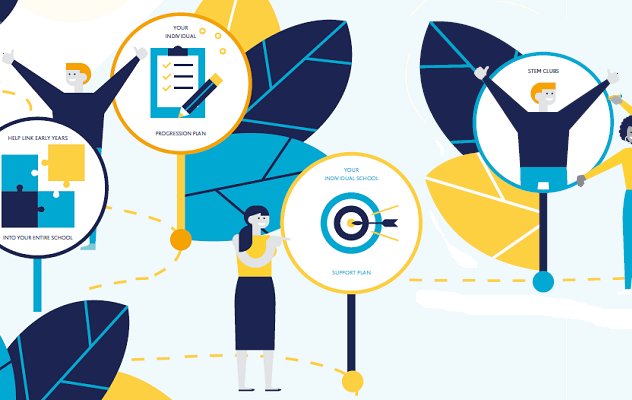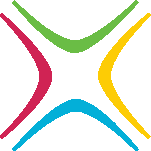
ENTHUSE Partnerships are part of a funding initiative which aims to provide the support necessary to inspire young people into STEM subjects and careers. They enable groups of schools to improve young people’s achievement and engagement in STEM, developing a bespoke two-year action plan and extensive programme of support for teachers and pupils
|
Bourne Abbey Church of England Primary Academy was one in a group of schools in the south of Lincolnshire which was part of a recent ENTHUSE Partnership Award Project. Our aim with the partnership was to support science leaders within primary schools in understanding how pupils in early years learn key scientific skills. The intention was to enable the science leaders to then plan, monitor and evaluate the quality of science teaching and learning all the way through their schools. The resulting action plan should focus on the development of a progressive, challenging and developmentally appropriate curriculum. Support comprised of invaluable face-to-face CPD sessions, as well as individual school support, bespoke to their unique needs. I developed and lead the CPD sessions placing emphasis on the characteristics of effective teaching. The learning framework from the early years foundation stage (EYFS) was used as the key tool to inform science leads. This framework includes the skills and dispositions required by pupils in the early years, such as problem solving, testing a variety of possible solutions, critical thinking exploration, making links and predictions. By including these key characteristics into science leads’ progression plans, we provide staff the support needed to roll these out to the wider school, building a framework which is able to meet the needs of all pupils across STEM subjects. Further CPD sessions were focused specifically on assessment throughout early years, the role of the adult in supporting pupils’ enquiry skills, the development of practical activities and the role of the science lead. A significant element of all sessions was to make the links between early years and the rest of the school in order that the science leads could target their monitoring and evaluation of teaching and learning in their own schools. CPD sessions also took place in the second year of the partnership specifically for the early year teachers in each of the project schools. These included areas such as use of the learning environment, developing and challenging early years scientists through investigations and developing scientific problem solvers. Alongside CPD sessions was individual support for each school based on priorities matched to either the school improvement plan and/or individual professional needs. These included the development of monitoring processes, the involvement of pupils in their own learning and the development of STEM Clubs.
Impact on science leads All science leads developed a clearer picture of science in their own schools, saying they have a deeper understanding of how key skills progress and develop. An additional way the impact manifested was through increased confidence in understanding how science is taught in the EYFS. One teacher shared how her conversations with her EYFS team are now much more targeted on outcomes and how she can support their own CPD. “I think they appreciate that they are included in whole school decisions.” The process for planning, evaluating and monitoring is now more focused on pupils’ outcomes. “The way we celebrate children’s scientific achievements and analyse data to identify misunderstandings or missed opportunities has changed for the better,” says Helen Marshall of Ambergate Sports College. “We all have a clearer picture of what needs to be taught, how the curriculum can be delivered and what the next steps are for children as they move forward in their scientific journey.”
Impact on staff The project also had significant impact on wider school staff. Science leads were expected to cascade information back, ensuring that impact was far-reaching and sustained. EYFS teachers and support staff felt that they were ambassadors for science teaching and learning in the schools. There is a closer relationship now between the ‘how’ and the ‘what’ of in-school learning. Resources are organised and are used, and additional resources are purchased with a clearer focus on their impact for science learning. The Senior Leadership team and governors have more involvement in the science curriculum with science leads being able to speak with more confidence about teaching and learning.
Impact on pupils Significantly, outcomes for pupils in reception increased, with the gap between boys’ and girls’ achievements narrowing. All science leads reported that outcomes in working scientifically improved throughout the school. “Children have improved cognitive skills and application of skills. Children are now able to transfer key skills into other lessons and staff are able to challenge and improve their reasoning skills,” Gemma Turner of Southview Community School reported back. As a result of the work of the ENTHUSE Partnership, pupils now have more opportunities to further develop their scientific skills through STEM Clubs, family science sessions and WOW events which are included in whole school enrichment events. This is just the beginning!
This article was published in the STEM Learning magazine for primary educators by Jayne Carter, Primary Lead at Lincolnshire Science Learning Partnership |

